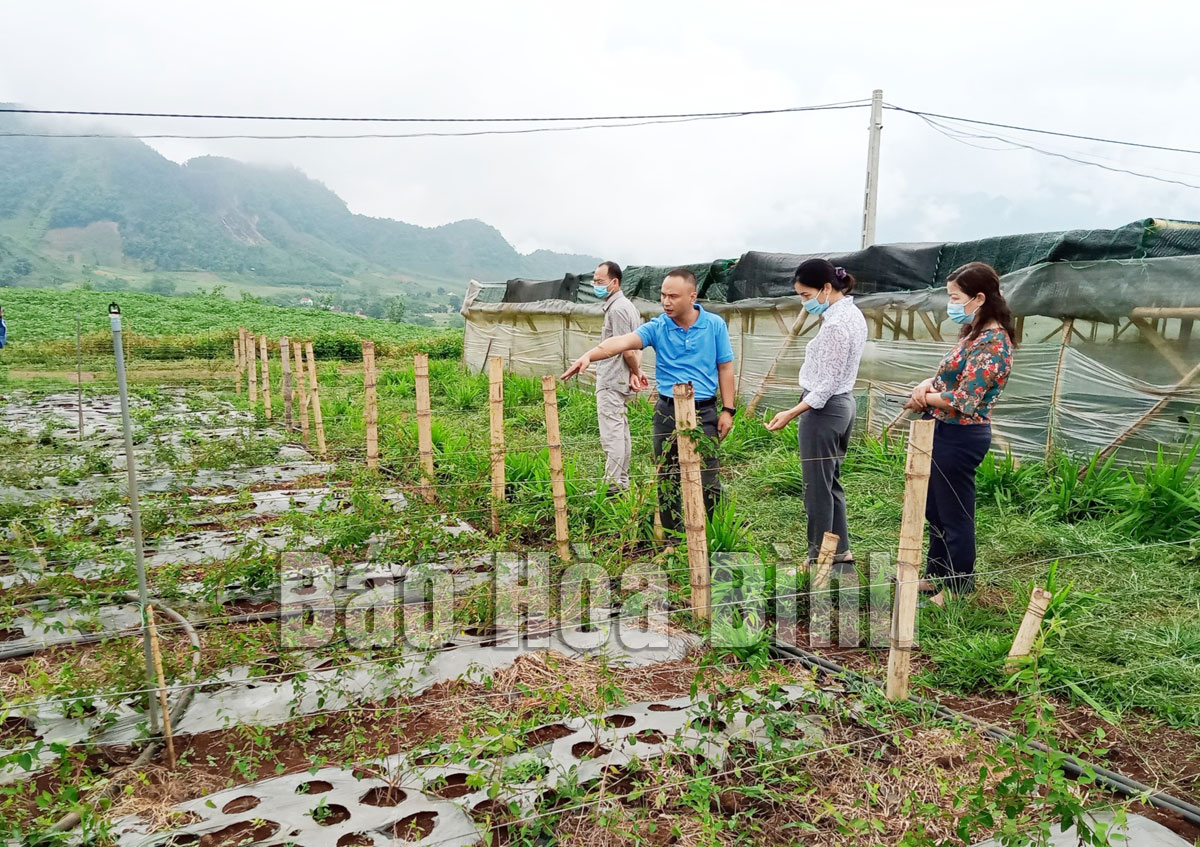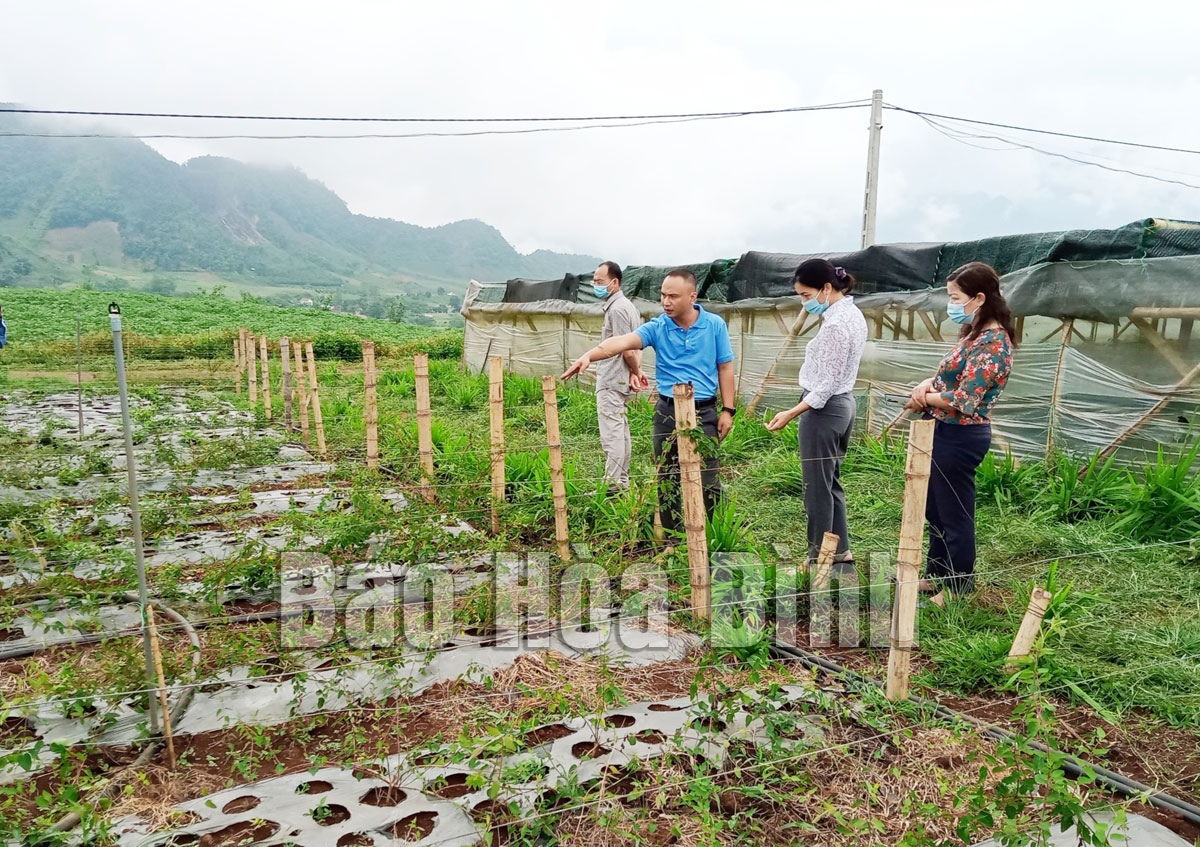
(HBO) – After two years of implementation, the medicinal plant cultivation model in Da Bac district’s Yen Hoa commune has brought about practical economic outcomes. With its potential, the model is planned to be replicated in the coming time.
The
model of growing organic medicinal plants in Yen Hoa commune (Da Bac) initially
bring about practical results.
Realising such benefits, locals have so far created favourable conditions for
the cooperative to lease over 11 hectares of land to expand its cultivation
area. The cooperative creates regular jobs for 14 local workers, with an
average income of 5 – 6 million VND per person per month.
Determining that developing sustainable agriculture requires organic
production, right from the beginning, the cooperative has cultivated its
medicinal plant garden completely without using chemical fertilizers and
pesticides. Instead, organic fertilizers and herbal pesticides have been
ultilised.
Luong Van Xung, Chairman of the Yen Hoa People's Committee, said medicinal
plants are suitable for local soil conditions. In addition to the leased land,
there are many areas potential for further cultivation expansion. He also pledged the local authorities’ support for businesses to invest in new
models serving socio-economic development.
In the coming time, Da Bac aims to expand its areas for organic medicinal
plants to 25 – 30ha by 2025. For the target, the district will build mechanisms
and issue policies to attract resources from organisations and individuals for
the development of the plantations and processing technologies. The cultivation
of native medicinal plants is encouraged./.
According to data from the Hoa Binh Provincial Party Committee, the industrial production index for the first six months of 2025 is estimated to have increased by 20% compared to the same period last year. This marks the highest year-on-year growth rate for this period since 2020.
In the first six months of 2025, Hoa Binh province’s export turnover was estimated at 1.145 billion USD, marking an 18.11% increase compared to the same period in 2024. Import turnover was estimated at $ 804 million, a 17.15% increase, which helped the province maintain a positive trade balance.
The lives of the ethnic minority farmers in Tan Lac district have gradually improved thanks to the new directions in agricultural production. This is a testament to the collective strength fostered through the professional associations and groups implemented by various levels of the district’s Farmers’ Union.
With the motto the "product quality comes first,” after nearly one year of establishment and operation, Muong village’s Clean Food Agricultural and Commercial Cooperative, located in Cau Hamlet, Hung Son Commune (Kim Boi district), has launched reputable, high-quality agricultural products to the market that are well-received by consumers. The products such as Muong village’s pork sausage, salt-cured chicken, and salt-cured pork hocks have gradually carved out a place in the market and they are on the path to obtaining the OCOP certification.
In the past, the phrase "bumper harvest, rock-bottom prices" was a familiar refrain for Vietnamese farmers engaged in fragmented, small-scale agriculture. But today, a new spirit is emerging across rural areas of Hoa Binh province - one of collaboration, organisation, and collective economic models that provide a stable foundation for production.
Maintaining growing area codes and packing facility codes in accordance with regulations is a mandatory requirement for agricultural products to be eligible for export. Recently, the Department of Agriculture and Environment of Hoa Binh province has intensified technical supervision of designated farming areas and packing facilities to safeguard the "green passport" that enables its products to access international markets.



